Empower Your Toddler with Speech Therapy
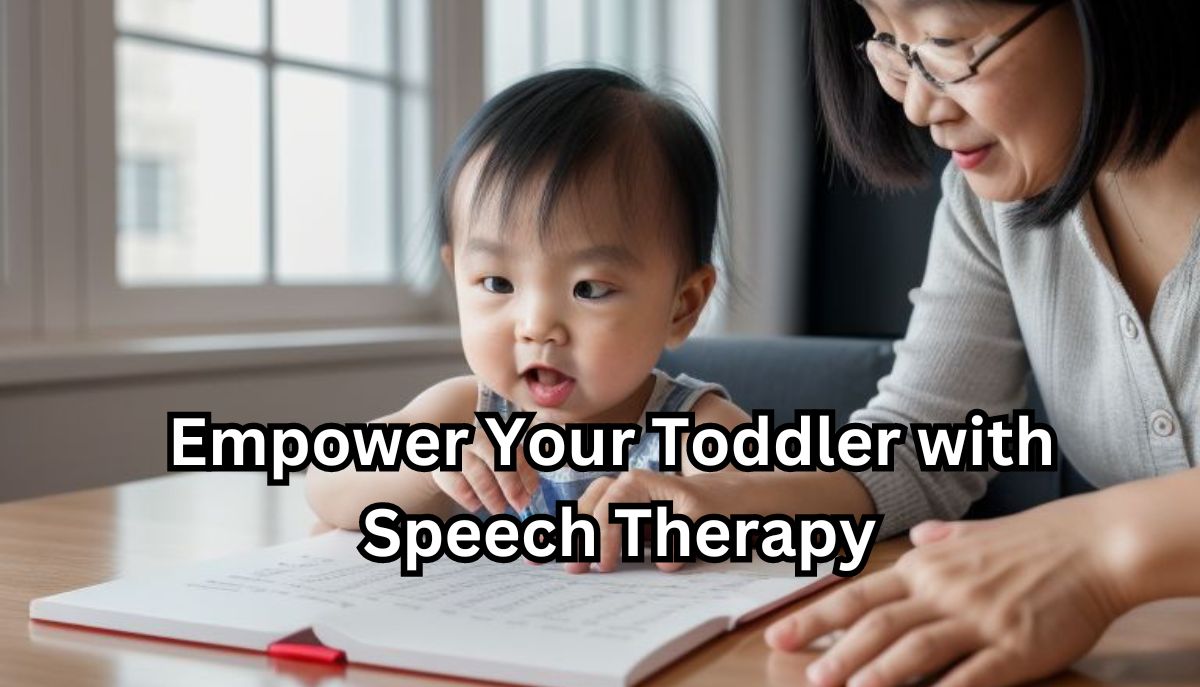
Every parent wishes that their child should be able to express himself or herself clearly, but this is not always the case. Therefore, it may be necessary for a guardian to seek help for the little one who might be having difficulties in speaking.
Speech therapy can make a world of difference for a child who is unable to communicate properly. Children must get the help they need as soon as possible so that they can catch up with their age mates within no time thus boosting their self-esteem levels.
I have shared everything with you regarding speech therapy for toddlers; starting from what it entails, its importance, understanding when children should be hitting specific speech milestones or if there may be any delays indicated by certain signs and how one can help at home.

Typical Milestones in Speech and Language Development
Every child has their own rate at which they grow and learn but there are some common steps that most kids take while at it. You can use these steps as a guide to helping your youngster through the process of speech development.
Milestones Breakdown by Age
Birth to 4 Months
What to Expect: Newborns start making cooing sounds and respond to the sounds around them. They might also startle at loud noises.
Why It Matters: These early sounds are the building blocks of speech. They show your baby is hearing and reacting to their environment.
7 to 12 Months
What to Expect: Babies will start babbling using syllables like “ba-ba” or “da-da.” They could say their first word around this time.
Why It Matters: Babbling is important because it helps them learn different mouth movements for producing various sounds which are necessary for speaking later in life
12 to 24 Months
What to Expect: Your toddler’s vocabulary will start growing quickly. By 18 months, they might know about 20 words, and by 24 months, they could be combining two words, like “more juice.”
Why It Matters: This stage is all about building vocabulary and starting to put words together to make simple phrases.
24 to 36 Months
What to Expect: Your child will start forming basic sentences like “I want cookie” and should be speaking more clearly. By the age of three, they might have a vocabulary of about 200 words.
Why It Matters: When children are able to form sentences it shows that they are learning how language works structurally and can communicate better with others.
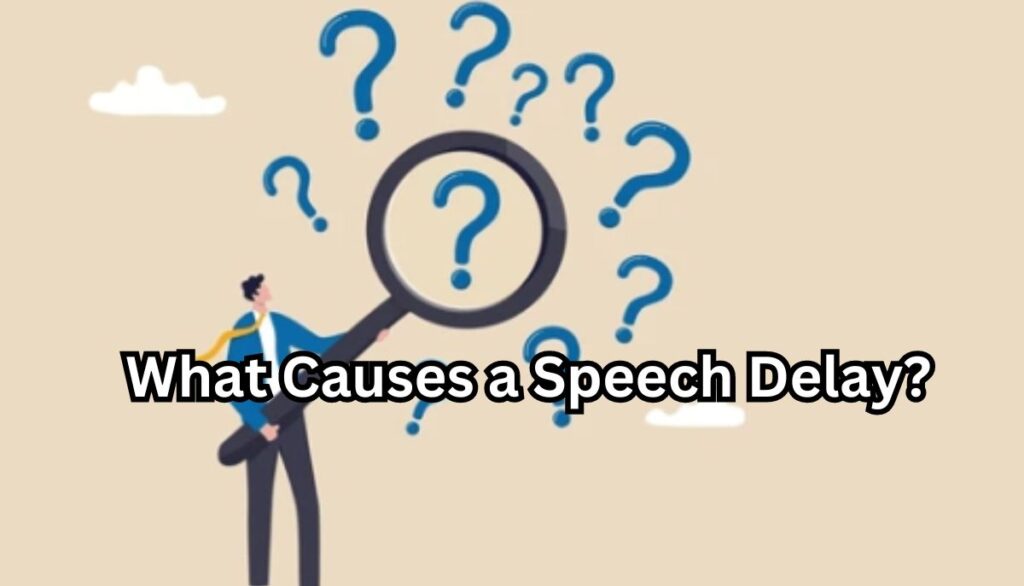
What Causes a Speech Delay?
There are many reasons behind toddlers’ speech delay. It can happen due to hearing issues, developmental disorders or also it may be just because if late talking runs in the family. Sometimes there is no clear reason and kids only require more time or assistance to speak well.
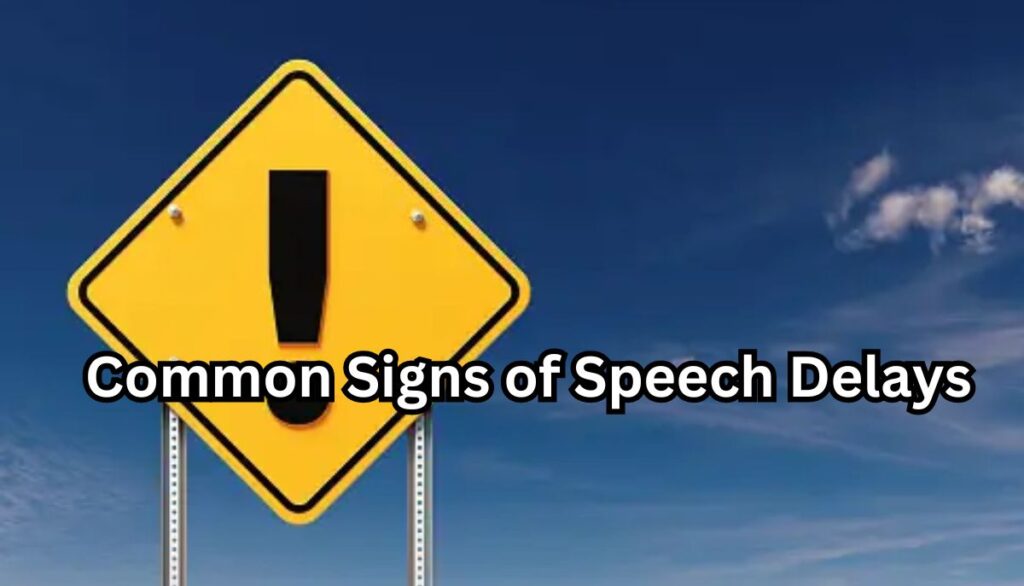
Common Signs of Speech Delays
- Pronunciation difficulties: This is when your child’s pronunciation is not clear compared to other children of the same age group as him/her
- Limited vocabulary and understanding: If your toddler isn’t using as many words as expected or seems to struggle with understanding simple instructions.
- Slow rate of speech: If their speech is unusually slow or their tone doesn’t match their words (e.g., saying a happy word with a sad tone).
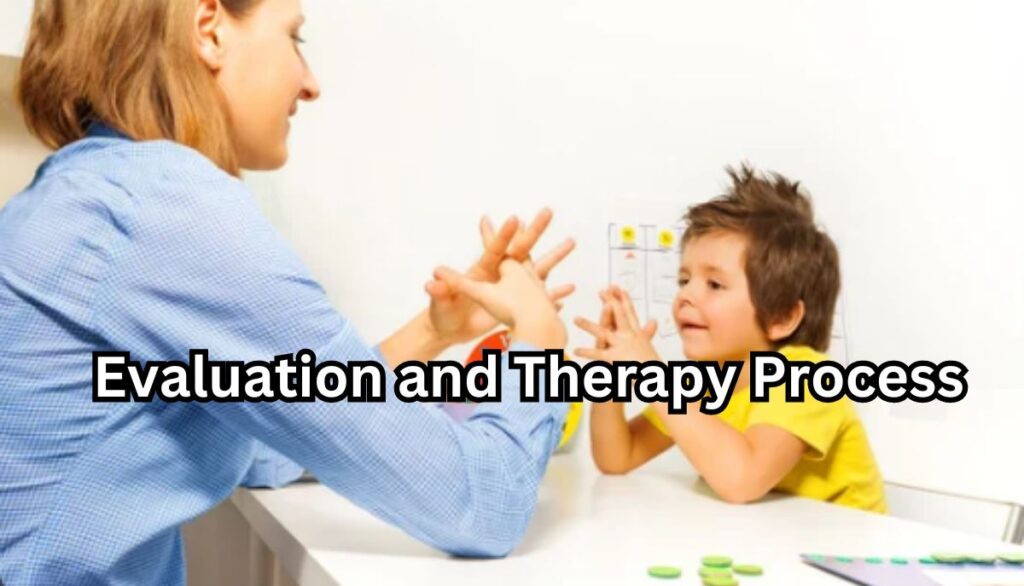
Evaluation and Therapy Process
- How Does a Speech Therapist Evaluate a Toddler?
A speech therapist will assess your child’s speech and language skills through play and structured activities. They’ll look at how well your child understands and uses language, as well as their ability to produce sounds and words.
- What to Expect During Speech Therapy Sessions?
Therapy sessions are usually fun and engaging, focusing on activities like playing games, reading books, and using flashcards. The goal is to make speech practice enjoyable while targeting specific areas your child needs to improve.
- When Should You Start Speech Therapy for a Toddler?
The sooner, the better. Early intervention is key to addressing speech delays effectively. If you have any concerns about your toddler’s speech, it’s a good idea to consult a speech therapist sooner rather than later.
- How Long Does it Take to Improve with Speech Therapy?
The timeline varies for each child, depending on the severity of the delay and how consistently they practice. Some kids show improvement in a few months, while others might need longer. Regular practice at home can speed up progress.
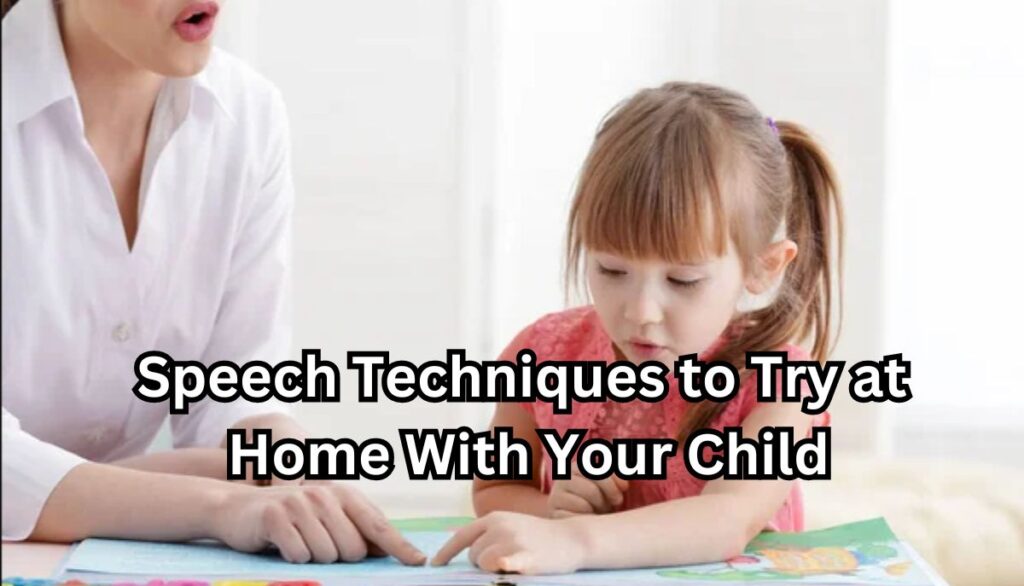
Speech Techniques to Try at Home With Your Child
- Complete the Thought Game: Encourage your child to finish your sentences. For example, you start with “The dog is…” and they finish with “barking.”
- Use Flashcards: Show pictures and ask your child to name them. This helps build vocabulary.
- Make Silly Sounds: Play a game where you make different sounds and have your child mimic them. This can improve their ability to produce different sounds.
- Read With Your Child: Reading together every day can boost your child’s language skills. Ask questions about the story to engage them.
- Model Simple Language for Your Child: Use clear and simple sentences when you talk to your child. For example, say “big ball” instead of “gigantic sphere.”
- Provide Choices to Your Child: Give them options, like “Do you want the red cup or the blue cup?” This encourages them to use words to make choices.
Conclusion
Early speech therapy can really make a big difference for your toddler. It helps them catch up and learn to communicate better, setting them up for success in the future.
When toddlers get the support they need early on, they can overcome challenges more easily and build strong communication skills. This can boost their confidence and help them interact better with others.
If you’re worried about your child’s speech development, don’t hesitate to get professional advice. Speech therapists are there to help, and getting started early can lead to the best results.
They can give you a clear picture of what’s going on and create a plan tailored to your child’s needs.
So, if you see any signs of speech delay, reach out for support. Your child’s ability to talk and express themselves is incredibly important, and with the right help, they can make amazing progress.
Remember, you’re not alone in this journey. By taking action early, you’re giving your toddler the best chance to thrive and communicate with confidence.
FAQ’s
Why might my toddler need speech therapy?
If your child is having trouble speaking or not meeting typical speech milestones, speech therapy can help them catch up and communicate better.
At what age should a toddler start speech therapy?
Start as early as you notice any concerns. If your toddler isn’t meeting speech milestones or has trouble communicating, it’s a good idea to consult a speech therapist right away.
How to give speech therapy to a toddler?
You can support speech therapy at home by engaging in fun activities like playing games, reading books, using flashcards, and making silly sounds. Keep it playful and interactive to keep your toddler interested.
What activities encourage toddler speech?
Complete the Thought Game: Let your child finish your sentences.
Use Flashcards: Show pictures and ask them to name things.
Make Silly Sounds: Mimic different sounds together.
Read Together: Read books daily and ask questions about the story.
Model Simple Language: Use short, clear sentences.
Provide Choices: Offer options like “Do you want the red cup or the blue cup?
Is it normal for a 3-year-old to not talk clearly?
It’s not uncommon for 3-year-olds to have some unclear speech. However, if you’re concerned about their clarity or vocabulary, it might be good to get them evaluated by a speech therapist.
Can too much TV cause speech delay?
Yes, too much TV can contribute to speech delays. Interactive play and talking with your child are much better for developing their speech and language skills.
What food is good for speech delay?
There’s no specific food that directly helps with speech delay, but a balanced diet with lots of fruits, vegetables, whole grains, and protein can support overall brain development and health, which are important for speech.
How long will it take to see improvement with speech therapy?
It varies by child. Some improve in a few months, while others might need longer. Consistent practice at home helps speed up progress.
What happens during speech therapy sessions?
Sessions are fun and engaging, involving games, books, and flashcards, making speech practice enjoyable while focusing on areas needing improvement.
